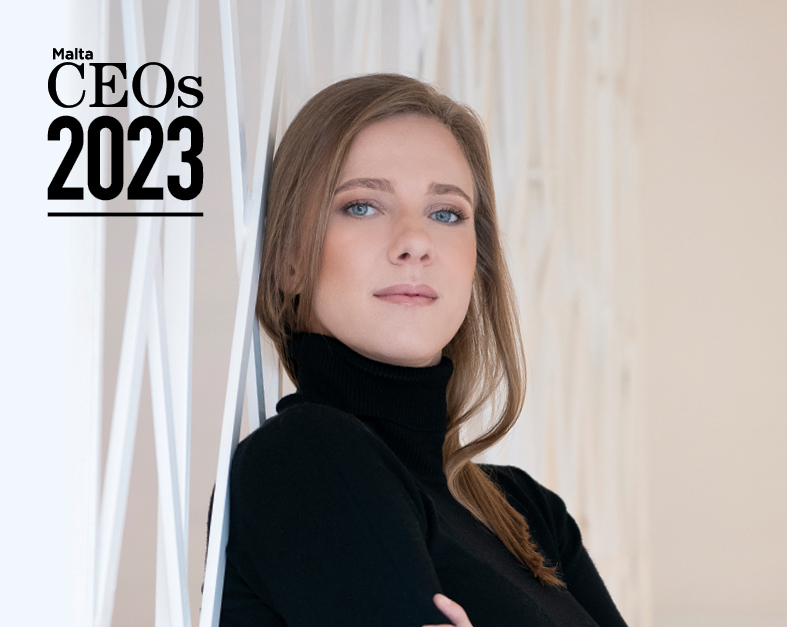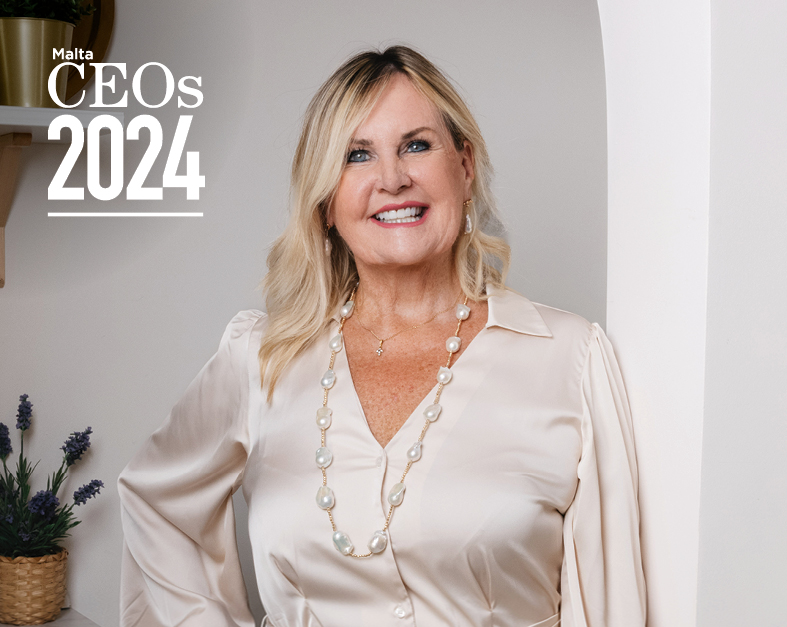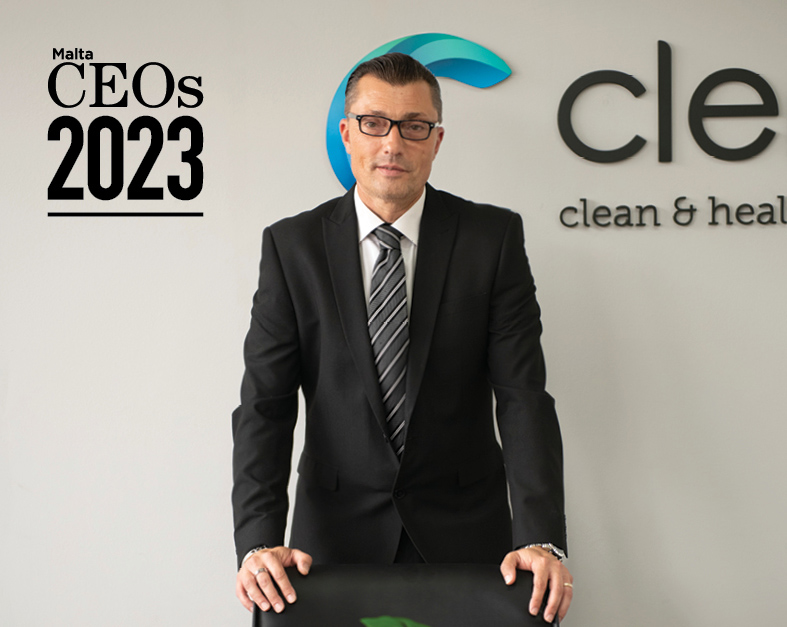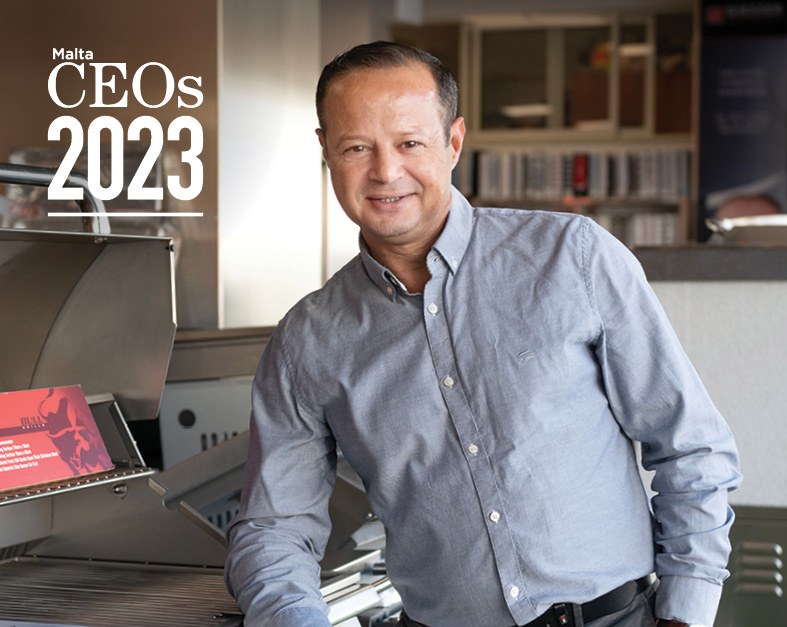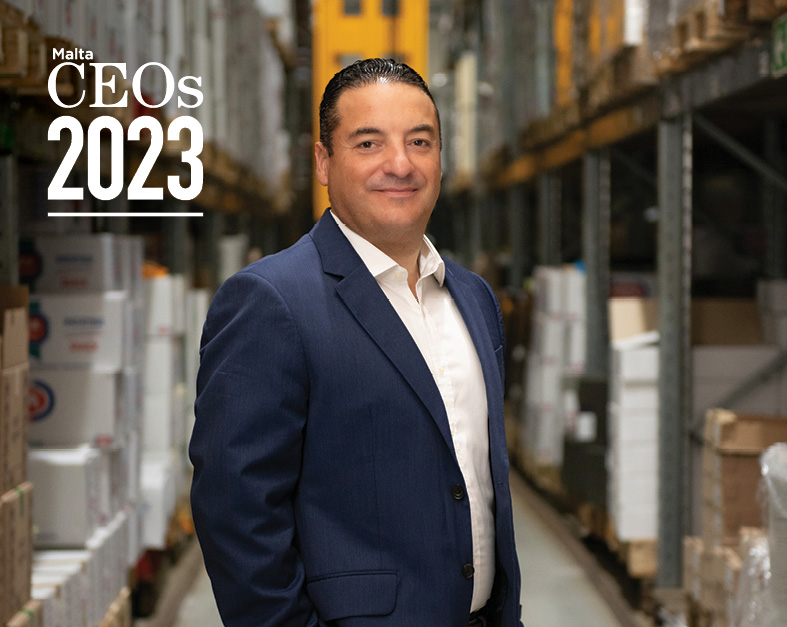Alona Andruk, Founder and CEO of Take Off Ltd, was an Olympic cyclist before she started her entrepreneurial journey. And, although her two careers might seem very different, they have more in common than meets the eye.
Professional cycling and leading a thriving company might appear to be very different, but Alona Andruk’s first career as an athlete taught her many skills that she has carried on to her role as CEO of Take Off.
“I was a professional cyclist for years and determination is a quality that helped me both in that career and in this one,” she shares. “I’m very methodical and consistent, and like to work on something until I get it right. In sport, you have to repeat the same movements thousands of times before you’re really good at them, and I bring that same focus to my role in business today.”
Voted Young Entrepreneur of the Year in 2022, Alona has already achieved a lot, but becoming a leader hasn’t been easy for her. A self-confessed introvert, she admits that working with a large group of people can be challenging – while the sportswoman in her thrives on challenges. “In sports you’re limited to one discipline, but in business there are thousands of variables, which I love,” she says. “Although cycling looks like an individual sport, it taught me how to be a team player. One day you lead, another day a different team member leads; but everyone always works together.”
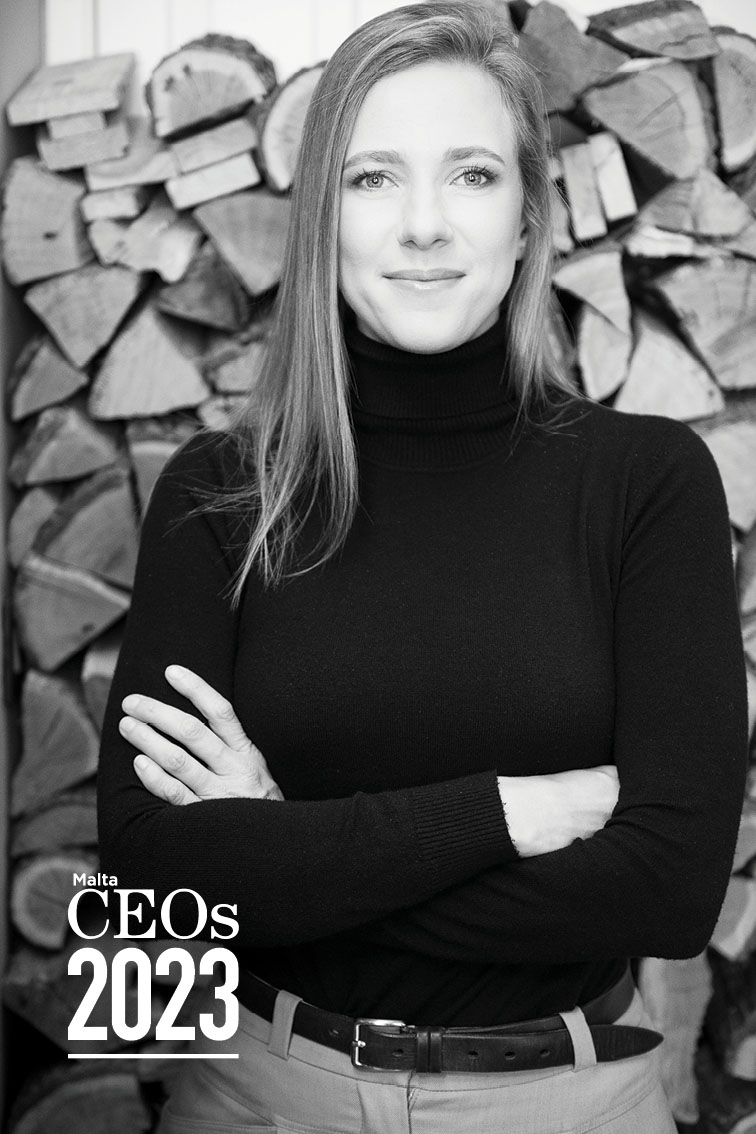
Alona retired from professional cycling at the peak of her career after she began to feel restricted and emotionally exhausted from doing the same thing repeatedly. “I have always been very curious and have an inclination towards business, so I read a lot about it,” she says. “I quit cycling without even having a plan, knowing that I would find something to do. As I started to search for an opportunity, I began interviewing my friends about their interests outside sports, including a friend of mine who was working in the fashion industry.”
Her curiosity led her down a rabbit hole about the fashion industry, circular economy, and what happened to unsold clothes at the end of each season. The fact that 100 billion items of clothing are produced every year with only half of them sold left an impression on her. “When I saw the warehouses full of discarded clothing, I knew this was the opportunity I was looking for,” she shares. “So I spoke with potential clients to understand what they needed and found a gap of unrealised revenue for the companies, which would also serve a different type of client. I started with Ukraine since, having been born there, it was easier to understand the language and culture.”
What Take Off does is buy unsold inventory from well-reputed clothing brands, create master data, repackage it if the packaging is damaged, relabel it and shoot it in a professional photography studio. It is then redistributed to new countries where it can be sold at a price that is more affordable in that territory. “We now have an algorithm which helps our company understand where to sell, to whom, at which price and in which priority,” says Alona. “Most importantly, we are an omnichannel company because we sell online and offline, covering all B2B channels.”
Take Off now has close to 50 employees but, for the first three years, Alona ran the show single-handedly, outsourcing most of the work. “Choosing my first six employees in 2018 was the most difficult thing but also an important landmark for me. We have learned everything together and kept growing from there,” she shares.
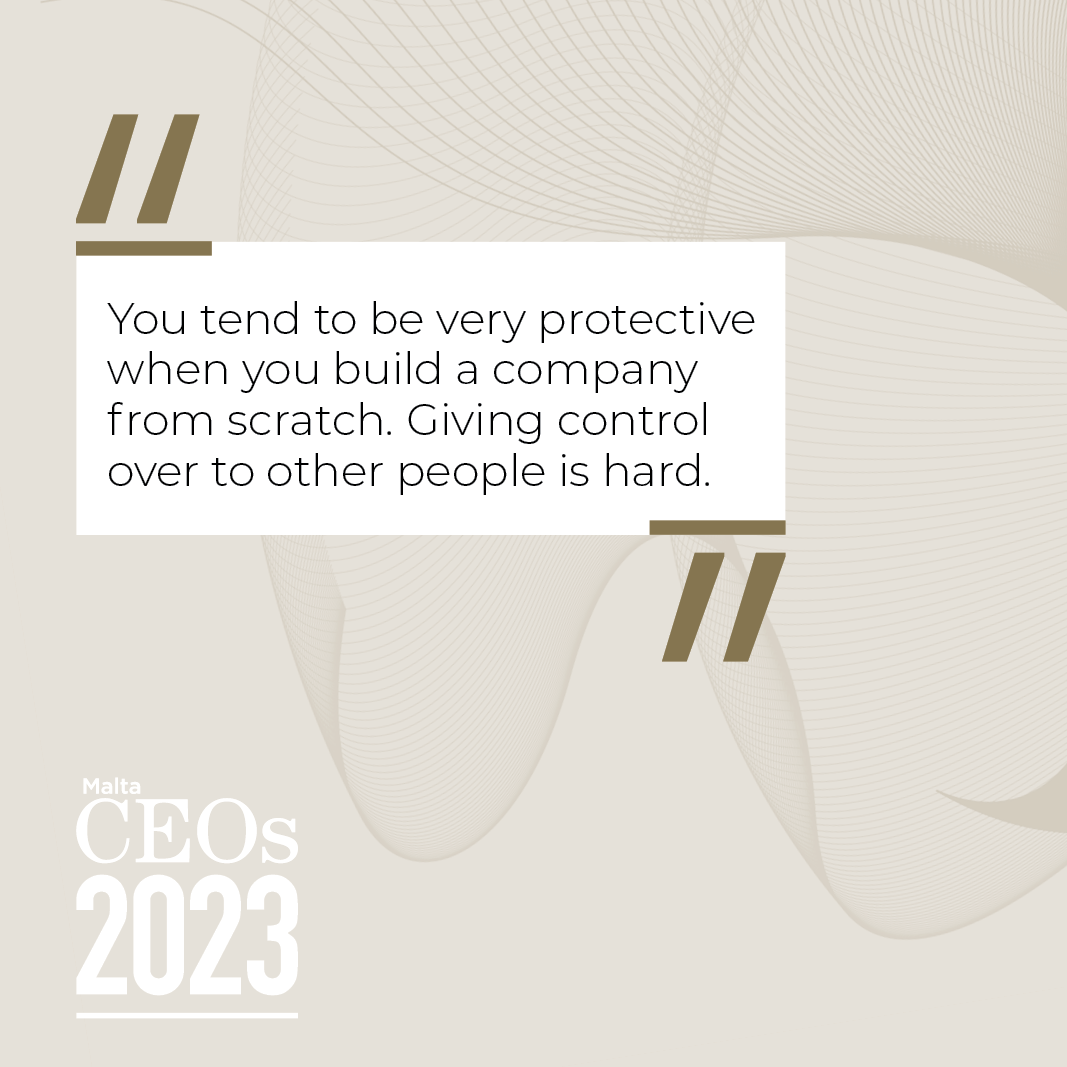
Another memorable landmark was getting the company’s first Enterprise Resource Planning (ERP) system set up. This fully integrated software system enables Alona and her colleagues to manage their vast inventory. “We started this project in 2018, but it was only during the COVID-19 pandemic that we found the time to implement it. It was a very demanding project because of the sheer amount of items, but thanks to it, we could go global. In fact, Take Off now distributes to 35 countries.”
In this respect, the pandemic period led to very positive results for the Take Off team, with a 25 per cent turnover increase when compared to the previous year. This was further surpassed in 2021 and 2022, with a 50 per cent increase and 30 per cent increase respectively.
The implementation of the software system also enabled Alona to shift from operational work to a more strategic position. She admits that taking on the role of CEO wasn’t easy for her. “It took me forever to transition to a CEO position and think about strategy,” she shares. “You tend to be very protective when you build a company from scratch, and giving control over to other people is hard. But I started letting go of some roles over the years with good results. It was a struggle not only to find the right people, but also to give them the creative freedom to express themselves.”
Take Off currently uses third-party logistics (TPL) warehouses to store its millions of items. But one of the projects in the pipeline is to build its own, tailored to its needs and run by its own employees. “We are also very excited about an AI project we kicked off last year,” says Alona. “We originally developed our algorithm in-house because it’s very particular to our business but are now implementing AI, which will make it much more automated and self-learning.”
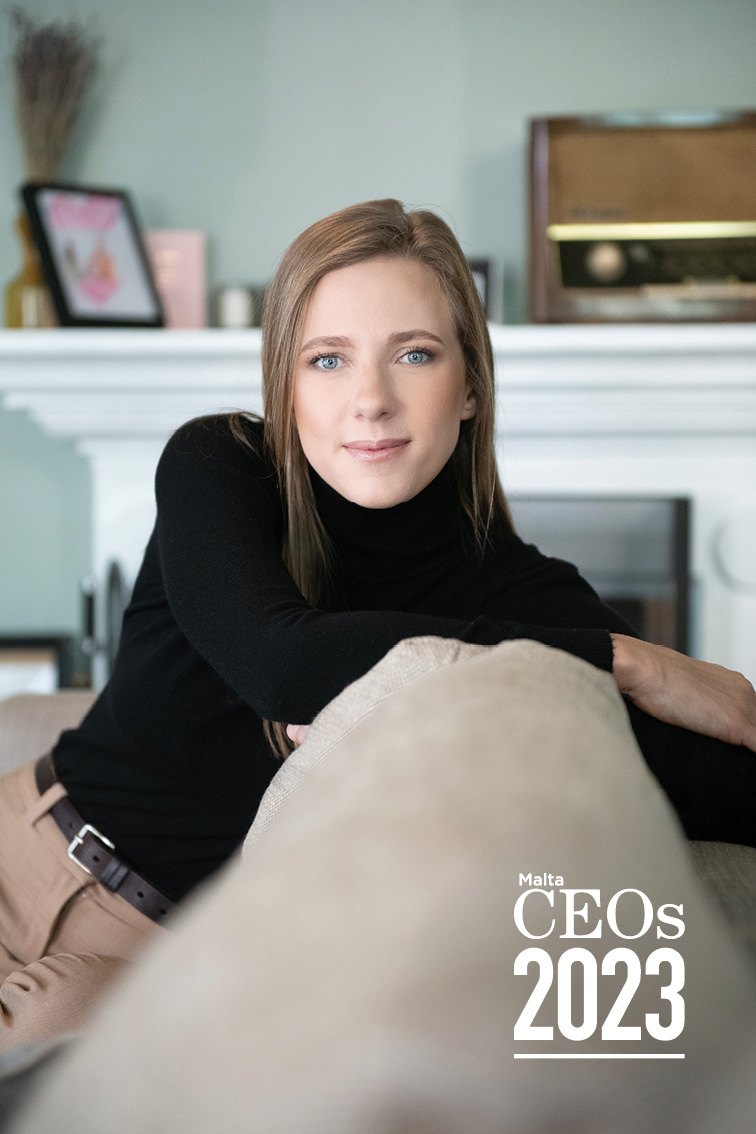
Like most other companies, Take Off was affected by the events of the past two years. Although the COVID-19 pandemic presented its own obstacles, what followed was an even bigger blow to Alona and her company. Not only did the conflict in her native Ukraine disrupt the company’s main markets, but it was also upsetting on a human level. “It was very hard because many of our employees are Ukrainian, 10 of whom work in our office in Kyiv. At first we were hit financially, and then emotionally,” Alona confides. “For a few months we couldn’t understand what was happening, but the whole situation ultimately gave me the motivation to do something. When things are calm, I tend to be a bit complacent, but when COVID-19 hit and then this war started, I went into survival mode and tapped into my creativity.”
Since the beginning of the Ukrainian invasion, Take Off has added 30 new customers from different countries, and now that Ukrainians are back at work and trying to live as normal a life as possible in the circumstances, Take Off has started to sell there again in smaller amounts. “It has been a tough year, but it really showed us how resilient our business is and has taught our team the importance of being agile and able to change strategy when needed, even if it is on a weekly basis.”
In fact, the CEO says long-term plans don’t work anymore, and recent events in her native country forced her to look at her role as a leader in a different light. “At a certain point, it wasn’t just about business anymore. Once we had good cash flow, I had to turn my attention to other, more human, problems. I felt I had to protect my employees and, although it almost felt intrusive, I had to try and convince them to leave our city because it had become too dangerous. Being far from the conflict zone made it easier to see things clearly and make decisions.”
Digitalisation lies at the heart of Take Off’s efforts to reduce the impact of the fashion industry on the environment, but Alona and her colleagues also like to get their hands dirty. In Malta, they collaborate with Hal Far Outreach and Nature Trust Malta, and they do the same with other NGOs in Italy and Ukraine. Although people are increasingly aware of the importance of sustainability, Alona insists that a lot more needs to be done. “Governments should educate people about the true cost of fast fashion and that it is much better to buy one good-quality item than it is to buy 10 which will be thrown away after a couple of seasons,” she concludes.
This article is part of the serialisation of 50 interviews featured in MaltaCEOs 2023 – the sister brand to MaltaCEOs.mt and an annual high-end publication bringing together some of the country’s most influential business leaders
‘My greatest joy is seeing the stockists that I partner with succeed’ – Key To Younger CEO Sandra Calafato
Sandra affirms that representing Environ in Malta has given her purpose, ‘as it has made a difference in so many ...
‘You start from nothing, and then you grow’ – Clentec Ltd Founder and CEO
MaltaCEOs 2023 serialisation: Simon Jesmond Turner shares that some have been with the firm from the start, with children now ...
‘Whatever you’re doing, you always need to be forming relationships’ – Zamco Group CEO
MaltaCEOs 2023 serialisation: Sandro Zammit shares that the company almost never says no to anything, and, while that can be ...
‘Some of the greatest opportunities emerge from crises’ – Nectar Ltd CEO Roderick Abela
MaltaCEOs 2023 serialisation: Roderick has come a long way since his first days at the company nearly three decades ago.


